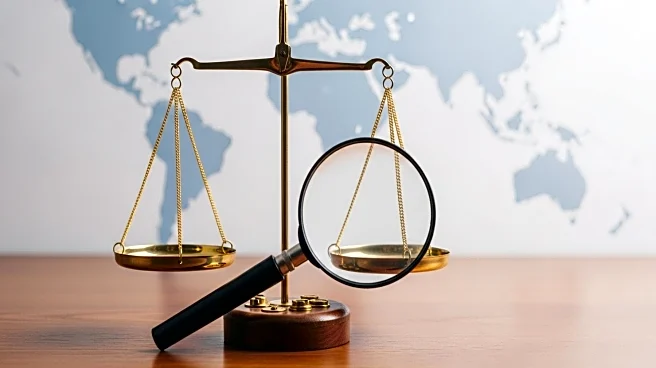What is the story about?
What's Happening?
Colombian President Gustavo Petro has accused the U.S. of violating international law following the revocation of his visa. The U.S. decision came after Petro participated in a pro-Palestinian demonstration in New York, where he urged U.S. soldiers to disobey President Trump's orders. Petro, who holds European citizenship, dismissed the need for a U.S. visa, emphasizing his freedom as a global citizen. Colombia's Ministry of Foreign Affairs criticized the use of visa revocation as a diplomatic weapon, arguing it contradicts the U.N.'s principles of freedom of expression and member state independence.
Why It's Important?
The visa revocation and Petro's accusations could strain U.S.-Colombia relations, impacting cooperation on key issues like drug trafficking and trade. Petro's criticism of U.S. actions in Gaza and his call for disobedience among American soldiers reflect deeper ideological divides that may influence future diplomatic engagements. The incident raises concerns about the use of visa policies in diplomatic disputes and their implications for international law and freedom of expression.
What's Next?
The diplomatic fallout from the visa revocation may lead to further tensions between the U.S. and Colombia. Petro's stance could provoke additional diplomatic challenges, especially if he continues to criticize U.S. policies. The situation may prompt discussions on the role of international law in diplomatic relations and the potential need for neutral hosting of U.N. events to ensure member state independence.
Beyond the Headlines
The incident highlights broader geopolitical dynamics, including the influence of U.S. foreign policy on Latin American countries and the complexities of balancing diplomatic relations with domestic political agendas. Petro's actions and the U.S. response may set a precedent for how political leaders engage with international protests and criticism of foreign governments.















